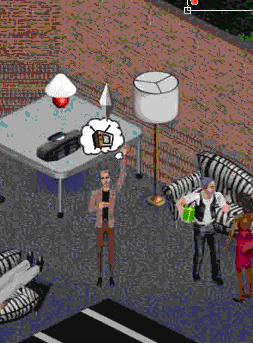Klosterman writes about starting his career as a writer without the internet.
It allowed me to have an experience that is not exactly unique, but that will never again be replicated: I started my professional career in a world where there was (essentially) no Internet at all, and I’ll end my professional career in a world where the Internet will be (essentially) the only thing that exists.
Not that I want to go back, but I’m glad I have some memory of a time without the internet. I’m also happy I could see it evolve to what we have today.
I read But What if We’re Wrong on a Kindle on the iPhone app. Highlights and notes are available at all times. I could switch to different books. I could switch and text friends for a few minutes. I could switch and watch the TED talk on the multiverse. I could switch and decide what food to order for 20 minutes.
Timescales
Klosterman points out the rate of change for different activities. TV viewing in 2016 is totally different than 1996. Further back, TV viewing in 1976 is also very different from 1996. He contrasts that with the experience of going to a theater, which hasn’t changed all that much in the same span.
The movies themselves have changed. I walked by a Jurassic Park 20th anniversary poster a few years ago. That didn’t seem right but of course it was. Then I thought about 1993. Star Wars wasn’t even 20 yet.
Then I started thinking through other things on this 20 years back, 20 years forward scale.
Food: Yesterday I scrolled through options on Seamless for 20 minutes. If I was heading out, I’d probably do the same but on Yelp. In 1996 I feel like you went to like 5 places and those were your places. I was also ten so this exercise might not be perfect. In 2036 I’ll look up etiquette for tipping the robot car.
Talking to friends: Yesterday I texted friends in New York, Florida, California, and my brother in Washington. In 1996 this experience would be somewhat replicable with a desktop computer. Again, I was ten and had no access to the internet. But instant messaging existed so this is a surprisingly static experience. Text isn’t going anywhere anytime soon so 2036 might look kind of the same.
Talking to friends, pt II: In 1996, I could call them but it’d cost a lot of money. Klosterman talks about this:
as a college student in the early nineties, I knew of several long-term romantic relationships that were severed simply because the involved parties attended different schools and could not afford to make long-distance calls, even once a week. In 1994, the idea of a sixty-minute phone call from Michigan to Texas costing less than mailing a physical letter the same distance was still unimaginable.
Yesterday, as mentioned, I texted my friends and didn’t call. Because nobody calls anymore. Our hand computers happen to have phone apps. I don’t think this will change much by 2036.
Talking to friends, pt III: I do have a few video chats through FaceTime or Hangouts every week. If we’re going to take the time to set up a call, we may as well sort of look at each other’s faces. I don’t have a good sense of if I do this more or less frequently than others.
VR is advancing. In 2036 I guess I would put VR glasses on to talk to them. But I’ll probably still text first to tell them I was calling.
No laughing allowed

Just a short note because this seems like it should be a widely known thing but I asked a few friends and got plenty of huh I guess that is true:
When the rom-com series Catastrophe debuted on Amazon, a close friend tried to explain why the program seemed unusually true to him. “This is the first show I can ever remember,” he said, “where the characters laugh at each other’s jokes in a non-obnoxious way.”
Other characters just don’t laugh. Klosterman says it’s an “unspoken, internal rule”. No laughing, even if Joey has a turkey on his head.
Other links
If you enjoyed some of the ideas here, it’s probably worth checking out the rest of But What if We’re Wrong.
Klosterman did the rounds on different podcasts around the book’s release.


